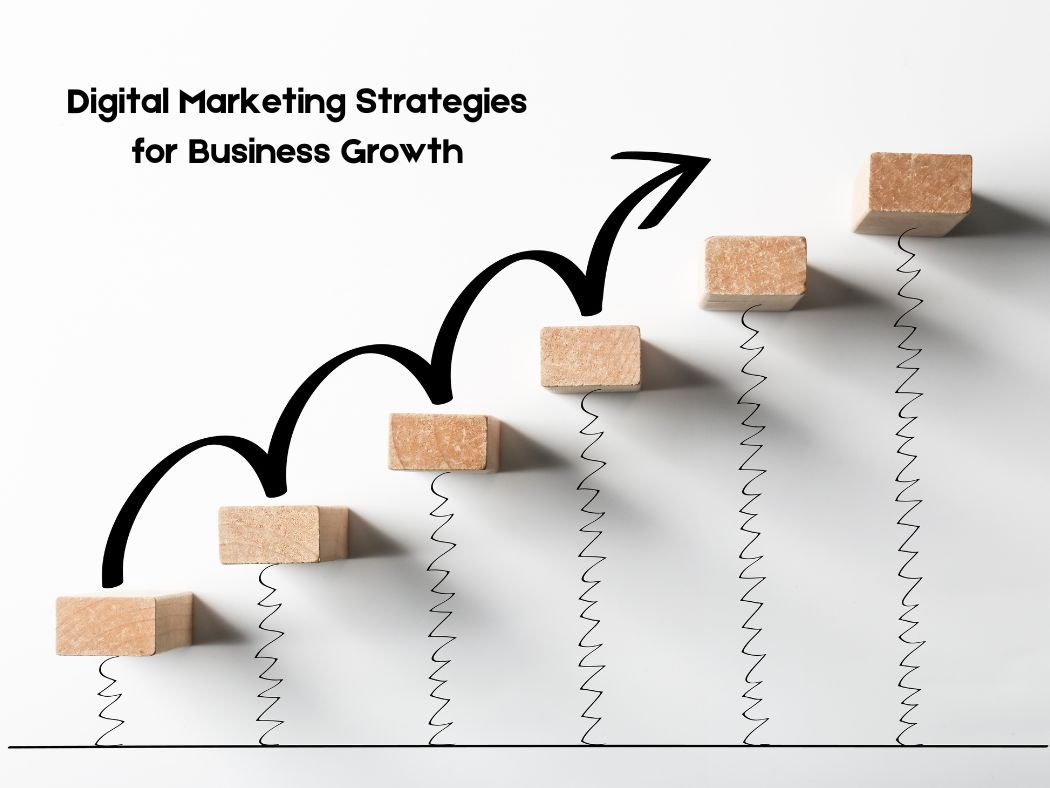In today's fast-paced digital world, having a strong online presence is crucial for any business looking to grow and succeed. Digital marketing offers
In today’s fast-paced digital world, having a strong online presence is crucial for any business looking to grow and succeed. Digital marketing offers a myriad of opportunities to reach potential customers, engage with existing ones, and build a brand that stands out. However, with so many strategies and tools available, it can be overwhelming to know where to start. In this blog, we’ll explore some effective digital marketing strategies that can help your business achieve significant growth.
1. Search Engine Optimization (SEO)
SEO is the foundation of any successful digital marketing strategy. It involves optimizing your website to rank higher on search engine results pages (SERPs) for relevant keywords. By improving your SEO, you can increase organic traffic to your site and attract potential customers who are actively searching for products or services like yours. Here are some key SEO practices:
- Keyword Research: Identify and target the keywords your potential customers are using.
- On-Page SEO: Optimize your website’s content, meta tags, images, and URLs.
- Off-Page SEO: Build high-quality backlinks from reputable sites to boost your site’s authority.
- Technical SEO: Ensure your website is fast, mobile-friendly, and has a clean structure.
2. Content Marketing
Content marketing is all about creating valuable, relevant content that attracts and engages your target audience. This can include blog posts, articles, videos, infographics, podcasts, and more. High-quality content can establish your brand as an authority in your industry and drive organic traffic to your site. Here are some tips for effective content marketing:
- Know Your Audience: Understand your target audience’s needs and preferences.
- Create Valuable Content: Offer solutions, insights, and information that your audience finds useful.
- Consistency is Key: Regularly update your blog or content channels to keep your audience engaged.
- Promote Your Content: Share your content on social media, email newsletters, and other platforms.
3. Social Media Marketing
Social media platforms are powerful tools for reaching a wide audience and building a community around your brand. Each platform has its own unique audience and features, so it’s important to tailor your strategy accordingly. Here are some tips for social media marketing:
- Choose the Right Platforms: Focus on the platforms where your target audience is most active.
- Engage with Your Audience: Respond to comments, messages, and mentions to build relationships with your followers.
- Use Visual Content: Posts with images, videos, and infographics tend to perform better.
- Run Social Media Ads: Invest in paid advertising to reach a larger audience and drive traffic to your site.
4. Email Marketing
Email marketing remains one of the most effective ways to nurture leads and convert them into customers. It allows you to communicate directly with your audience and deliver personalized content. Here are some email marketing best practices:
- Build a Quality Email List: Collect email addresses from interested prospects and customers.
- Segment Your Audience: Divide your email list into segments based on demographics, interests, and behavior.
- Personalize Your Emails: Use the recipient’s name and tailor the content to their preferences.
- Track and Analyze: Monitor your email campaigns’ performance and make adjustments as needed.
5. Pay-Per-Click (PPC) Advertising
PPC advertising involves paying for ads that appear on search engines, social media platforms, and other websites. It’s a great way to drive targeted traffic to your site quickly. Google Ads and Facebook Ads are popular PPC platforms. Here are some tips for successful PPC campaigns:
- Set Clear Goals: Define what you want to achieve with your PPC campaigns.
- Choose the Right Keywords: Target keywords that are relevant to your business and have high search volume.
- Create Compelling Ads: Write ad copy that grabs attention and encourages clicks.
- Optimize Landing Pages: Ensure your landing pages are relevant to the ad and have a clear call-to-action.
6. Influencer Marketing
Influencer marketing leverages the reach and credibility of influencers to promote your brand. By partnering with influencers who have a large following and align with your brand values, you can reach a wider audience and build trust. Here are some tips for influencer marketing:
- Choose the Right Influencers: Look for influencers whose audience matches your target demographic.
- Build Authentic Relationships: Collaborate with influencers who genuinely believe in your product or service.
- Track Results: Monitor the performance of your influencer campaigns and measure ROI.
7. Analytics and Data-Driven Decisions
Finally, it’s essential to track the performance of your digital marketing efforts and make data-driven decisions. Use tools like Google Analytics, social media insights, and email marketing reports to analyze your campaigns. By understanding what’s working and what isn’t, you can optimize your strategies for better results.
Conclusion
Digital marketing offers endless opportunities for business growth, but it requires a well-rounded strategy and continuous effort. By implementing these digital marketing strategies—SEO, content marketing, social media marketing, email marketing, PPC advertising, influencer marketing, and data-driven decision making—you can build a strong online presence, attract more customers, and drive sustainable growth for your business.
Other Useful Links


COMMENTS